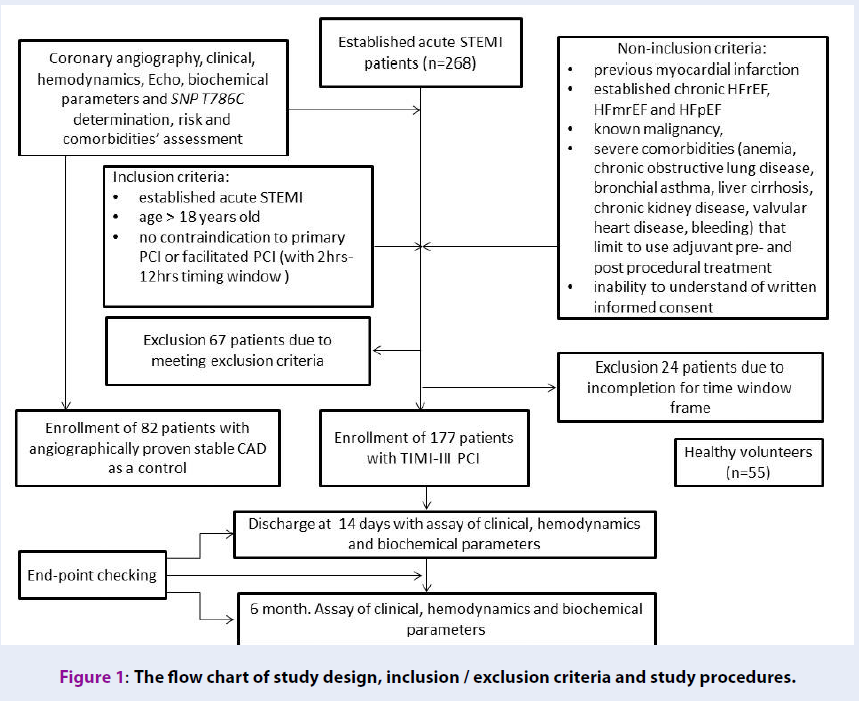Short-term clinical outcomes in patients with acute myocardial infarction after successful percutaneous coronary revascularization: the role of promoter polymorphism of the endothelial nitric oxide synthase gene
DOI:
https://doi.org/10.15419/bmrat.v6i5.543Keywords:
endothelial NO-synthase gene, outcomes, single nucleotide polymorphism Т786С, STEMIAbstract
Background: The purpose of this study was to investigate the associations between variants of a promoter polymorphism of the endothelial nitric oxide synthase (eNOS) gene and clinical outcomes in acute ST-segment elevation myocardial infarction (STEMI) patients after a successful primary percutaneous coronary artery intervention (PCI).
Methods: 177 patients with acute STEMI, 82 patients with angiographically proven stable coronary artery disease, and healthy volunteers were included in the study. The primary end-point was a combined event (follow-up major adverse cardiac events –MACEs and hospitalization) that occurred within 6-month of the discharge from the hospital.
Results: The combined end-point was determined in 72 patients from the entire acute STEMI population (40.6%), including 24 events for 786TT genotype, 23 events for 786TC genotype and 25 events for 786CC genotype. Kaplan-Meier curves demonstrated that acute STEMI patients with 786CC eNOs genotype had lower MACEs free accumulation when compared to those with 786TC and 786TT eNOs genotypes at 6-month follow up period (Log-rank p < 0.001). Multivariate Cox regression analyses identified 786CC in eNOs gene as an independent predictor of clinical outcomes in STEMI after PCI.
Conclusions: the 786CC polymorphism in eNOs gene is an independent predictor for clinical outcomes after a successful primary PCI in acute STEMI.

Downloads
Published
Issue
Section
License
Copyright The Author(s) 2017. This article is published with open access by BioMedPress. This article is distributed under the terms of the Creative Commons Attribution License (CC-BY 4.0) which permits any use, distribution, and reproduction in any medium, provided the original author(s) and the source are credited.
